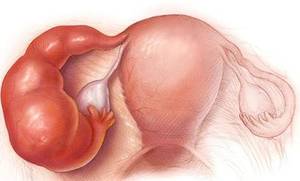It is vital to have a consistent and healthy bowel movement in order to maintain good digestive health and avoid any discomfort. Having a daily bowel movement indicates that your digestive system is working properly. If you experience irregular bowel movements, it is important to find and apply a few simple strategies in order to establish a healthy routine.
Effective Strategies for Daily Bowel Movements
By adopting these practices, you might find relief from digestive troubles and enjoy improved overall wellbeing.
- Stay Hydrated: Drinking enough water throughout the day is extremely important for maintaining regularity. If you don’t stay properly hydrated, you may experience difficulties in passing stool, leading to constipation and hard stools. It’s recommended to aim for at least 8 cups or 64 ounces of water per day, and try to consume it evenly throughout the day. Staying hydrated not only helps soften the stool but also aids in the smooth movement of waste through the digestive system.
- Fiber-Rich Diet: Having a diet that contains a large amount of fiber is crucial for maintaining regular bowel movements. It is important to include a variety of fruits, vegetables, whole grains, and legumes in your meals every day as they provide the necessary substance to promote regularity. Fiber adds volume to feces, making it easier to pass through the colon. Great sources of fiber include berries, apples, spinach, broccoli, oats, quinoa, brown rice, and lentils. It is advised to gradually increase your fiber consumption in order to avoid experiencing gas and bloating, and to aim for the recommended daily intake of 1-1.5 oz (25-35 grams).
- Regular Meal Timing: Creating a consistent schedule for meals can greatly aid in keeping your digestive system healthy. By eating at regular intervals, your body becomes accustomed to a routine, which helps your digestive system work effectively. It is recommended to have three meals each day and avoid skipping meals or indulging in excessive snacking. Following regular meal timings not only enhances digestion, but it also promotes regular bowel movements.
- Exercise Regularly: Physical activity plays a crucial role in maintaining optimal bowel movement frequency. Regular physical activity aids in activating the muscles in your digestive system, which in turn facilitates the movement of waste through the intestines. Participating in activities like fast-paced walking, running, or biking can enhance the overall efficiency of your bowel. It is recommended to aim for a minimum of 30 minutes of moderate exercise on most days of the week to enjoy the advantages of an active way of life.
- Manage Stress Levels: Experiencing high levels of stress can have a significant impact on your digestive system, resulting in inconsistent bowel movements and feelings of discomfort in the digestive process. By lowering your stress levels, you can bring equilibrium back to your body and improve the effectiveness of your digestive system.
- Prioritize Toilet Time: It is crucial to give yourself sufficient time for a thorough bowel movement. Hastening your bathroom routine may result in an unfinished evacuation, causing discomfort. Refrain from delaying the urge to defecate, as it can interfere with your body’s natural cycle. Allocate enough time for restroom breaks and respond promptly to the need to go.
Is it Normal to Poop Daily?
When it comes to bodily functions, some conversations can be a little uncomfortable. Yet, discussing our pooping habits is an essential aspect of maintaining good overall health. One common question that often arises is whether it is normal to poop daily. Well, the answer is a resounding yes!
Pooping daily is considered a sign of a healthy digestive system. Bowel movements help us eliminate waste and toxins from our bodies, ensuring optimal functioning. In fact, not pooping regularly can lead to a buildup of waste material, causing discomfort and even more serious health issues.
While the frequency may vary from person to person, most healthcare professionals agree that a daily bowel movement is a good indicator of a well-regulated digestive system. However, it is worth noting that everyone’s body is different, and individuals may have a different norm when it comes to their pooping routine.
What is the Best Time of Day to Poop?
When it comes to bodily functions, discussing poop might feel a little uncomfortable. However, it’s an integral part of our daily routine and can even provide insight into our overall health. One question that often arises is, “What is the best time of day to poop?” Well, let’s dive into this topic with a matter-of-fact tone.
The ideal time to poop differs from person to person. It depends on various factors such as diet, lifestyle, and individual habits. However, there are a few general points to consider.
- Morning Routine: Many people find that their body naturally signals the need to poop shortly after waking up. This is known as the “gastrocolic reflex.” As your digestive system becomes active after a night of rest, it stimulates bowel movements. Taking advantage of this natural rhythm can lead to a more comfortable experience.
- Circadian Rhythm: Our body’s internal clock, known as the circadian rhythm, influences several bodily functions, including digestion. For most individuals, bowel movements tend to occur within a few hours of waking up or after a meal. This may vary depending on an individual’s sleep schedule and daily routine.
- Post-Meal Pooping: Eating stimulates the digestive system. As your stomach and intestines process food, it triggers movement in the colon. For some people, this can lead to the urge to poop shortly after a meal. However, keep in mind that everyone’s digestion time may vary.
- Relaxation and Routine: Creating a regular pooping routine is beneficial for maintaining healthy bowel movements. Establishing a calm and relaxed environment while sitting on the toilet can help stimulate the muscles involved in evacuation. Consistency in timing can train your body to be more regular, which is vital for digestive health.
- Listen to Your Body: Ultimately, the best time to poop is when nature calls. Pay attention to your body’s signals, such as feeling an urge or experiencing abdominal discomfort. Ignoring the urge to poop can lead to constipation or other digestive problems, so it’s important to address it promptly.









